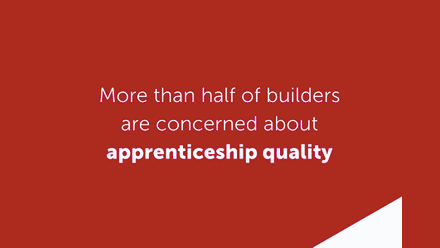2024 has the potential to be an exciting year for the housing and construction industry, with the latest construction industry economic data offering a glimmer of hope that the downward trends of 2023 are finally coming to an end. And with a General Election on the horizon, there will be a range of opportunities to broaden out the debate on the key issues, and to encourage the major political parties to support real change.
Here’s what to look out for in the year ahead:
2024 General Election
The 2024 General Election campaign is likely to encompass debate on a range of issues, of which house building and the winder construction industry, including financial challenges, are likely to be a key role.
With key debates around issues such as; House Building, the state of the UK economy, support for businesses, skills shortages and training programmes, and Government investment in infrastructure, likely to play a key role in the campaigns, this coming year promises to be an exciting period in the future of our industry.
The Federation of Master Builders will be spending 2024 working alongside the major political parties as they look to shape their manifesto pledges, and ensuring that the key decision makers are fully aware of the challenges that construction will continue to face without serious action.
In March, the FMB will be launching our own election manifesto, which will set out a series of measures to boost house building rates; how the UK provides the tools necessary for the scale of the retrofitting programme which will need to be undertaken; initiatives on apprenticeships and skills; the introduction of a full licensing system for builders; and look at a range of other issues.
State of the Housing Market
Tackling the housing crisis is one of the major challenges facing the Government in 2024, and as we head towards the General Election taking place this year, house building is likely to be one of the key issues.
The FMB’s 2023 House Builders’ Survey pointed to a challenging climate facing the Housing Marking in Britian, and this is likely to continue in the new year unless there is serious intervention to address the problem.
The survey report found that the planning system is rated as the number one barrier which is preventing the delivery of new homes, according to 55% of housebuilders who completed the survey.
Restricted mortgage availability and lack of available land were also highlighted as major concerns, with 51% and 48% of respondents noting, respectively. Rising material costs scored highly, with 43% of people suggesting that this represented a significant restriction in the delivery of new homes, while a lack of finance to the company rounds out the top five, on 42%.
Repair, Maintenance and Improvement – an Ongoing Concern
A potentially major concern to watch out for over the course of 2024 is the progress of the Repair, Maintenance and Improvements sector. In recent months, ONS Data has shown worrying signs for the construction industry. With the uptake of new work faltering, continued growth in RMI has been masking substantial underlying problems for the industry.
Figures suggest that, while house building rates have been declining for the past year, for the first time the civil engineering and commercial sectors are also beginning to show weakness. With employment rates also decreasing for the first time in ten months, there are worrying signs for the future of the construction industry.
Procurement Act 2023
In November last year, the Government passed a new Procurement Act, which is set to significantly reform the way in which the bidding process for public authorities to purchase goods and services, and contract public works.
The Act will establish a new regime for public contracting authorities, and is designed to regulate procurement at each of the key stages; Planning, Selection of suitable bids, Contract award, Management and End of contract.
It will improve visibility of upcoming work, which will mean SMEs having more time to prepare for the bidding process, and it will create a new central platform showing future work in each area - allowing a new SME construction firm to search for construction opportunities upcoming in their region.
The Procurement Act will also see a single website to register on created. We know that the current situation, where companies are having to register on multiple, time consuming, systems, is creating unnecessary hurdles, and so change will be welcome.
Unnecessary insurance costs, before a supplier has even bid for a contract, will be reduced; a new Competitive Flexible procedure, which will allow contractors to design more innovation into the process, benefiting smaller tech startups, will be brought in; and there will be measures to strengthen prompt payment rules, so that businesses throughout the public sector supply chain receive payment within 30 days.
The new laws are set to come into force in Autumn of this year, and the FMB will be offering a series of training guides and support tools to help your business adapt to the changes.






